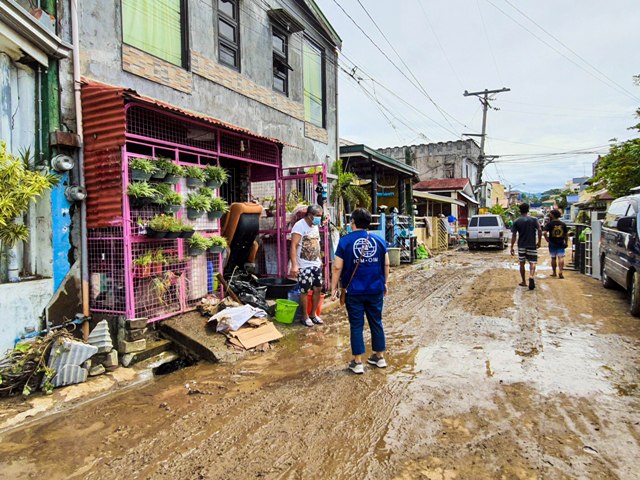UNICEF sends supplies to Typhoon Odette affected areas in Philippines
UNICEF staff is on the ground conducting assessments and is leading the Water, Sanitation and Hygiene (WASH), Nutrition, Education and Child Protection clusters together with the Philippine Government and partners.

After Typhoon Odette (international name Rai) brought widespread destruction to the Philippines on 16 December, the needs of children and families in affected areas are becoming clear. Based on initial assessments, around 845,000 children need urgent assistance. Immediate needs include food, water, medicines, clothing, Personal Protective Equipment (PPE), cooking equipment, family kits with sleeping materials, hygiene kits, temporary shelter, disaster kits, tents for healthcare facilities and go bags.
UNICEF staff is on the ground conducting assessments and is leading the Water, Sanitation and Hygiene (WASH), Nutrition, Education and Child Protection clusters together with the Philippine Government and partners. UNICEF’s emergency supplies are ready to be dispatched to respond to people’s needs for safe drinking water, sanitation, hygiene, nutrition, education, and child protection.
Around 2,000 family hygiene and dignity kits, 2,767 packs of water purification tablets, additional 2,018 bottles (in 100ml) of household water disinfectants, 2 collapsible bulk water storages, 50 emergency latrine kits and 25 tents for district hospitals and Rural Health Units were dispatched from UNICEF’s Mindanao Field Office in Cotabato City to Dinagat Islands, Siargao, Surigao City and Surigao del Norte. The kits contain items such as water buckets, soaps, toothpaste and sanitary napkins.
“Our hearts are with the children and their families who were affected by the typhoon. Many children will spend the holidays without a roof over their heads, hungry, cold and in emotional distress. UNICEF is working hard to respond to their urgent needs, together with the government and our partners,” UNICEF Philippines Representative Oyunsaikhan Dendevnorov said.
UNICEF is also calling to prioritize children’s needs for the response.
• The pandemic has exacerbated pressing child health issues and additional emergencies further compromise the welfare and overall wellbeing of children and young people. Access to life-saving care, and to quality maternal, neonatal, child and adolescent health services must be secured to guarantee every child and woman’s right to health.
• Affected populations must have safe and equitable access to sufficient quantity and quality of water to meet their drinking and domestic needs, as well as appropriate sanitation facilities.
• Children must be screened for malnutrition and malnourished children need to be reached with ready‐to‐use therapeutic food and breastfeeding mothers among evacuees need access to safe spaces for feeding.
• Child Protection systems in affected areas must be established and functional to prevent and respond to all forms of violence, exploitation, abuse, neglect and harmful practices. Unaccompanied and separated children (UASC) must be identified, placed in family-based care or in a suitable, safe, alternative care arrangement and provided with an individual case management/care plan.
• Learning must continue in safe and secure learning environments to ensure inclusive and equitable quality education.
• Climate change and environmental degradation are major threats to the lives, well-being, and future of children and young people. The climate crisis is a child rights crisis. Children and young people in the Philippines are among the most vulnerable to the devastating effects of climate-related disasters. Their voices must be heard, and they must be included in climate-related decision making.
- READ MORE ON:
- UNICEF
- Typhoon Odette
- Philippines
- Oyunsaikhan Dendevnorov
ALSO READ
UNICEF Reports Surge in Attacks on Gaza Schools, Calls for Ceasefire to Protect Displaced Children
UNICEF Urges Pakistan to Combat Hazardous Air Pollution Threatening Millions of Children
Philippines Devastated by Back-to-Back Typhoons, UNICEF Responds to Urgent Water, Sanitation, and Education Needs
UNICEF Warns of Escalating Humanitarian Crisis in Myanmar: Urges Action to Protect Children and Families
Children face unprecedented challenges by 2050, UNICEF report warns










